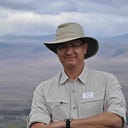RATIONALITY’S REASONING STRATEGIES — HOW WE BELIEVE
Rationality is humanity’s most important survival strategy. It operates between different modes of knowledge and across different reasoning strategies. This makes interdisciplinary and cross-contextual conversation possible.
Why should Christian theology bother to engage across disciplines and contexts?
The Great Commission extends the Gospel across geohistorical borders of ancient Israel., i.e., across space and time (both backwards into the past and forwards into the future). The Christian mandate to engage interdisciplinarily is supported both theologically because Christianity makes universal claims, and epistemologically because human thought operates with shared resources of rationality, i.e., our quest for understanding overlaps in every field of inquiry. For example to build an aeroplane, we draw from multiple resources of knowledge from engineering to materials science to meteorology to ergonomics and even to psychology. Each of these disciplines draw from the sciences and mathematics. So whatever your religious belief or disbelief, all humans use their brains’ minds to think and thrive. The Christian mind is part of humanity, so Christian theology is impoverished and even dangerous if understood in isolation. As human knowledge increases and our understanding of our bodies in the world we live in rapidly outpaces both agnostic and religious resources to catch up, both spiritual insights and the lack of them can devolve into self-fulfilling prophecies of communities that demonize the others, poisoning the human capacity for compassion. Agnosticism does not escape the mandate to think across disciplines.
A religious view of life seeks to answer existential questions, implying a specific cognitive choice and a responsible judgment for which we are rationally and experientially accountable. Choosing a religious view of life implies a choice to live our lives and be transformed by a comprehensive theological vision. Such theological worldviews are cognitive and transformative, shaping the rationality of the person.
If a Christian believes that God is loving rather than unkind, this will inform and shape her reasoning strategies for her life’s decisions. Indeed, in Romans 12:1–2, we are reminded to be transformed by the renewing of our minds and 2 Corinthians 10:5 instructs the Christian to make every thought captive for Christ. In this view, a theological worldview shapes one’s rationality.
What about the non-religious, non-spiritual agnostic (atheism is too daring a word, and most atheists are in fact agnostic)? The very notion of irreligiosity is itself a confessional conviction that forms an atheological worldview which also shape’s one’s rationality. In this case, atheological and scientific rather than theological and scientific reasoning strategies develop their own rationalities.
All worldviews are part of our cognitive makeup. Thus, theological reflection that grows out of a religious worldview need not be subjective or irrational any more than nontheological reflection. There are both thoughtful and looney minds among both agnostics and God-fearers, a generic word for religious people who believe in a creator God.
In summary, rationality is the common cognitive resource. How is your rationality shaped? Many Christians claim divine revelation as their source of knowledge which they interpret theologically. This assumes that we have direct access to absolute truth and can distinguish truth from falsity. But theology is not the only means to interpret divine revelation. We do not have direct access to absolute truth because our apprehension relies on interpretation, which itself is conditioned by emotions, memory and consciousness. Each of these mediators of understanding are fragile biomechanical systems subject to electrochemical circuitry inside the brain.
The goals of both science and theology are to understand and explain reality rather than to acquire truth per se.Explanations are contingent and geohistorically contextual, expected to undergo revision as the margins of error increase, but truths are absolute and geohistorically universal that we can never fully attain simply because we are not God.
Theology further seeks to provisionally understand testimonial truths from the written scriptures we have inherited that cannot be proven within the scientific method of observation and inference.
Faith in God rests on confidence drawn from conviction-shaping personal experiences mediated by the traditions of our faith communities through testimonial witnesses from which we adopt authorities based on rational judgment.
The challenge for Christian theology is not irrationality but how Christian rationality has been and continues to be shaped by geohistorical forces. The faith tradition passed on to us has not remained theologically intact, i.e., free from economic, political and even religious influences. For example, the Dead Sea Scrolls, discovered from 1947–1953, have shown us the differences between the scriptures that Jesus read and the Old Testament that we have today. Another example might be the 1800 years during which Christians believed slavery was acceptable and the 1900 years during which sexism was considered part of God’s will. The prime challenge is for the Christian to love God because God is our creator and not because of any perceived or promised personal advantages.
To this end, the Christian, like Daniel in Babylonia, must be willing to believe in God even if he does not get any personal advantage or benefit from such belief. That is the true mark of faith in God.
